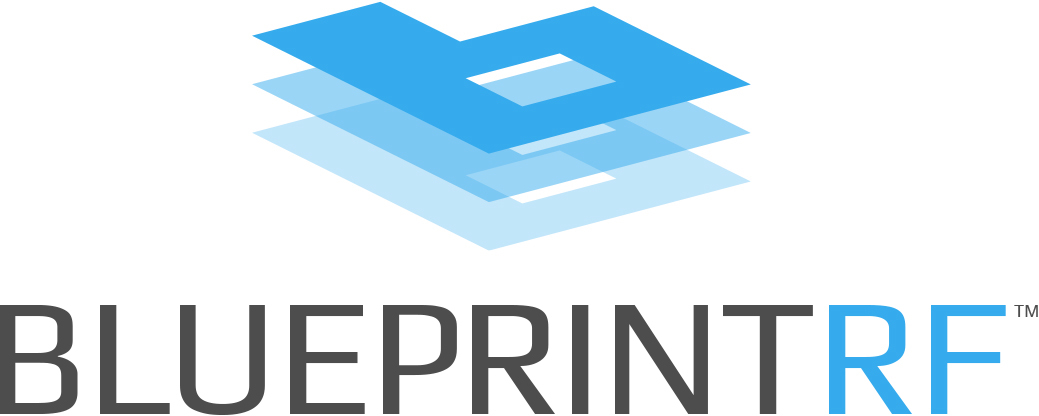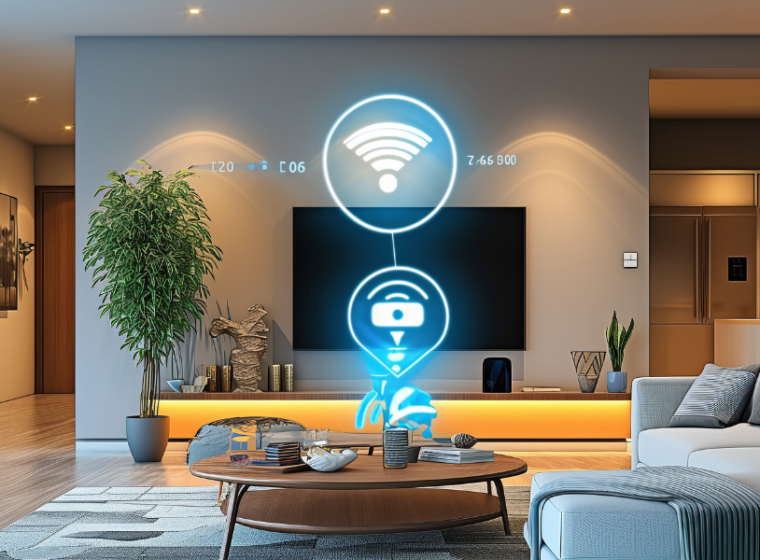The hotel industry is in a constant state of advancement, whether in the form of luxury, customer care, or innovation. To keep up with societal shifts, hoteliers must keep pace with ever-changing technology and innovation trends.
Any challenge tied to a franchise’s success and revenue can pose a major threat to its advancement. The 2020 global pandemic caused massive setbacks to the hospitality industry. Today, industry leaders are working to recover billions in lost revenue.
Let’s take a look at how technology can help hotels overcome today’s five biggest hospitality challenges and thrive in a post-pandemic landscape.
Challenge #1: Maintaining High Employee Attraction/Retention Rates Amidst Labor Shortages
Recruiting, training, and retaining quality employees is no small feat for any business. When operating an accommodation services company like a hotel – where employees are essential to meeting customers’ needs – things get even more challenging.
Professionals in the hospitality industry need to train and invest in employees. Long-term employees provide managers with a better understanding of interpersonal work dynamics. When you lose an employee, you lose the valuable training time invested in them.
The hospitality industry has always struggled with hiring and keeping employees. Hotels don’t experience these challenges alone–they’re also affecting other industries that rely on large numbers of service workers, such as restaurants and retail. This shortage is due to unpredictable work schedules, low pay, and high job turnover.
Hospitality employers with high turnover rates often have a revolving door of new hires. Each new employee requires equal (or higher) levels of training than their predecessors, forcing employers to start anew with every new employee. Over time, repeat training can cause high levels of distress. With a solid retention strategy, franchises can reduce turnover.
Solutions: Better Training and Culture, Harnessing Online Job Boards, and Creating Appealing Social Media Presences for Prospective Hires
Top-level management often dictates company culture. Team leadership can either set the entire team up for success or failure.
A hospitality company that provides top-notch training for its employees will see a substantial increase in retention rates. As the saying goes, “The better you train, the less you fire”.
Apart from providing a thorough and quality training program, employees that feel confident at work are more likely to stay. Another way to create a culture of retention is to coach your employees to understand their roles and how to exceed customer expectations. You can also coach managers on how to reduce employee stress and burnout.
When searching for new talent, online job boards are your friend. These sites provide greater accessibility between employers and potential employees. To attract high-quality talent through these platforms, comprehensive job postings with specifics on role requirements, qualifications, and perks should suffice.
Attention-grabbing job postings attract a larger pool of applicants, enabling employers to find perfect matches for their open roles. The #1 goal of recruiting is to fill roles with applicants fit for the company’s culture.
Job postings may not tell candidates everything they want to know about an employer’s team culture and brand ethos. They get a better feel of these deciding factors from social media. For this reason, all employers should have a humanized social media presence that creates an appealing, near-to-reality image of their company’s backend.
Challenge #2: Effective Reputation Management
Reputation is everything when it comes to hotels. In the age of social media, word-of-mouth reviews are highly influential.
When a guest has an excellent experience at a hotel, they’re likely to tell their friends about it and give the establishment a boost in reputation. But what happens when something goes wrong? A bad review can take a toll on any hotel’s reputation.
Given how much people rely on review sites, hotels with substandard reputations face a severe disadvantage. Even small dips in reputation can have devastating consequences for hotels.
Among the most frequently visited online review sites include:
- Google
- TripAdvisor
- Booking.com
- Expedia
- Hotels.com
- Yelp
- Orbitz
- Facebook
Negative reviews tend to have the most pull in their booking decisions. Seeing multiple bad reviews for the same concern may raise a red flag. Thus, hotel management should address poor customer experiences head-on to save their reputations.
Maintaining a positive image is undoubtedly one of the biggest challenges facing the hotel industry. When confronted with this issue, hotels should take immediate action.
Solutions: Actively Monitoring Online Review Sites, Swiftly Addressing Negative Reviews, and Rewarding Guests for Their Feedback
Hotels depend on positive ratings to flourish. Management must employ an online reputation team (and leverage key tools) to monitor and respond to incoming reviews.
Appointed employees for this role must be vigilant in their efforts to cosign positive reviews and salvage negative feedback. Hotel management can make their jobs a lot easier by avoiding bad customer experiences in the first place.
Management should also try to restore confidence in unhappy guests before they leave the premises. Intervention can save a negative review from making it online in the first place.
Common strategies for guest retention after a poor experience range from free Wi-Fi access to other complimentary amenities, such as spa privileges and loyalty points.
Assessing what satisfies each visitor takes work. Management must successfully pivot their damage control tactics for different customers. By accomplishing this goal, guests are likely to keep negative feedback to themselves.
Challenge #3: A Tailored Customer Experience
Today’s digitally-savvy traveler is looking for more than a place to sleep when they book their hotel: they want an experience. Companies like Kayak, TripAdvisor, and Expedia send travelers to hotel competitors with superior properties and services. As such, hotels need to step up their game.
Personalized customer experiences produce high revenue for the hospitality industry. There are innovative tools you can integrate within your hotel management system to increase customer satisfaction.
Solutions: Guest Profiles and Custom Messaging to Specific Guests
Guest profiles are one tool that can help achieve the goal of providing tailored experiences. Management can enter comprehensive guest data to further personalize the customer experience. These profiles track details like birthdays and anniversaries to send celebratory greetings and discounts.
Acknowledging guests’ interests and preferences can also improve the quality of their experience. Management can train staff to indicate certain guest observations during their stay, noting them within their profiles. With this data, franchises can better entertain returning guests according to their preferences.
Upon a guest’s anticipated arrival, franchises can send automated emails outlining details of their stay. Email is still the most effective go-to strategy for retaining customer interest. Hotels can make it a practice to send:
- A pre-stay email asking what a customer expects during their stay and optional add-on perks to enhance their experience (e.g., room service options).
- A post-stay email to keep in touch after their stay, thanking them for their visit, expressing that you look forward to seeing them again, and requesting customer feedback.
Details recorded during their stay can help support email customization goals.
Challenge #4: Navigating Environmental/Sustainability Challenges
Hospitality management wastes energy and resources more than any other similar industry. We waste countless resources each minute, from energy to raw materials. Hotels that track their wastage of resources are often alarmed by the quantity.
Each year, the hospitality industry is the cause of 60% of CO2 emissions. There was an evident increase in the last decade despite evident signs of global warming.
Many hotel giants have pledged to reduce energy use by 30% and water use by 20%. In a bid to tackle global water shortages, one major hotel brand has also announced a partnership with World Wildlife Fund (WWF).
Solutions: Track Power/Consumable Usage Online and Optimize Networks to Consume Less Energy
The first step to going green is reducing waste usage in all areas.
When tracking energy and water consumption per unit (building), franchises can assess where and why they waste energy, deploying necessary measures to mitigate excess resource consumption. Hotel hallways and meeting rooms in particular use up a lot of energy.
Giants like Hyatt, Marriott, and Wyndham have all taken steps to be more green. Thus far, all have invested in smart meters to track which hotels consume more energy. Similar technologies have allowed franchises to determine the water and energy use per hotel guest. These metrics are trackable online.
Certain hotels invest in a system that tracks guest movement with sensors. These sensors can detect idleness in a room and reduce room temperatures. The classic system that manages inactivity is the key card system.
With this system, the room conserves energy by automatically turning off the lights when an occupant leaves the room. The room’s thermostat also shuts off on its own, ending unused energy consumption in that room altogether.
Hotel meeting and conference rooms also operate on a motion system. When in an idle state, the rooms go into energy consumption mode. It then brightens back up following movement detection.
Challenge #5: Providing Quality Wi-Fi Access to All Guests
Travelers today demand more from their hotels and service providers. They expect access to Wi-Fi, gyms, cafes, business centers, and other services as standard rather than as a bonus. So how can hotels provide quality Wi-Fi access to all guests? For most franchises, it’s easier said than done.
The number of people who travel with mobile and computer devices has increased significantly in recent years. For this reason, hotels have had to rethink their strategy for internet provision.
Some hotels may lack the infrastructure to support total Wi-Fi access. In other cases, they may want to prioritize the needs of higher-paying guests over those who pay the bare minimum. Regardless, hotels that provide good Wi-Fi access can stand out from the competition as great places to stay. All hotels want to provide fast and reliable Wi-Fi access for their guests, but low bandwidth paired with rising guest demands poses a challenge.
Whether guests use hotel Wi-Fi for personal or business purposes, they expect their hotel of choice to have a robust system that safeguards their data. Digital data theft and consumer details are top concerns for most hoteliers.
Solution: Fast & Secure Networks, and Flexible Tiers for Guest Wi-Fi
As travelers are no longer content with slow and unreliable internet connections, guests strongly consider the speed of a hotel’s Wi-Fi connection. Upgrading a hotel’s Wi-Fi infrastructure to support high-speed internet access is therefore one way for hotel owners can address the increasing demand for faster connections.
Wi-Fi speeds change based on various factors such as distance, the number of users, and the number of devices connected. As such, the best way to improve the speed of the hotel’s Wi-Fi is to install a system that supports high-speed connections.
Hotel tycoons, like Marriott and Carlson, have switched to a tiered model for their guest Wi-Fi offerings. Even Wyndham Group, which previously offered free internet access for all customers, is switching to hybrid and tiered Wi-Fi models.
Hotels are more capable than ever of offering tiered Wi-Fi to their guests. Most guests leverage hotel Wi-Fi for general browsing purposes. Business travelers, however, often demand higher bandwidth to communicate with teams while away. The latter caliber of guests may need a high-tiered package to suit their executive needs.
Secure internet servers can help protect important guest data and prevent future data breaches. Providers like Blueprint RF can further enable hotel management systems to deploy data security measures and secure data from cyber theft.
How Blueprint RF Can Help Hotels Modernize Your Wi-Fi
Blueprint RF is a leading hospitality Wi-Fi provider, proudly serving franchises across the United States and Canada. Our experienced team is capable of supporting diverse businesses, modernizing their offerings to help better position themselves to overcome some of hospitality’s biggest challenges. We showcase our technology offerings at industry-leading events such as HITEC Orlando, where we also network with industry professionals to help them determine the best technology solutions for their businesses.
Our system is not a one-size-fits-all formula. Blueprint RF’s team of experts will listen to any Wi-Fi and security-related concerns and address them in a way that benefits your business and guests. Contact our team today to schedule a demo.









